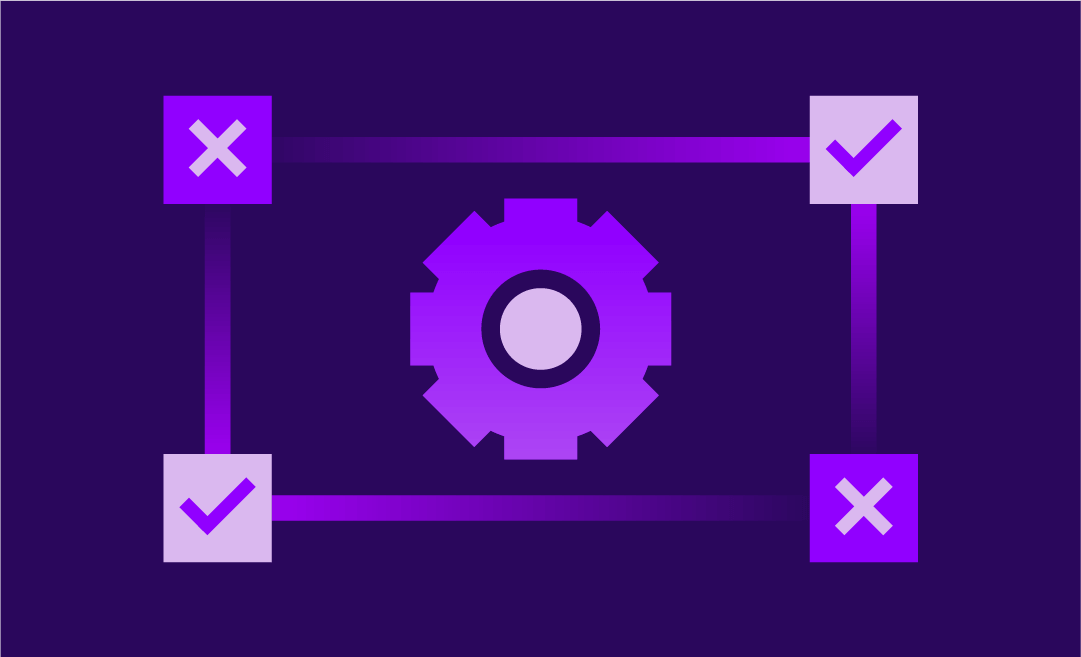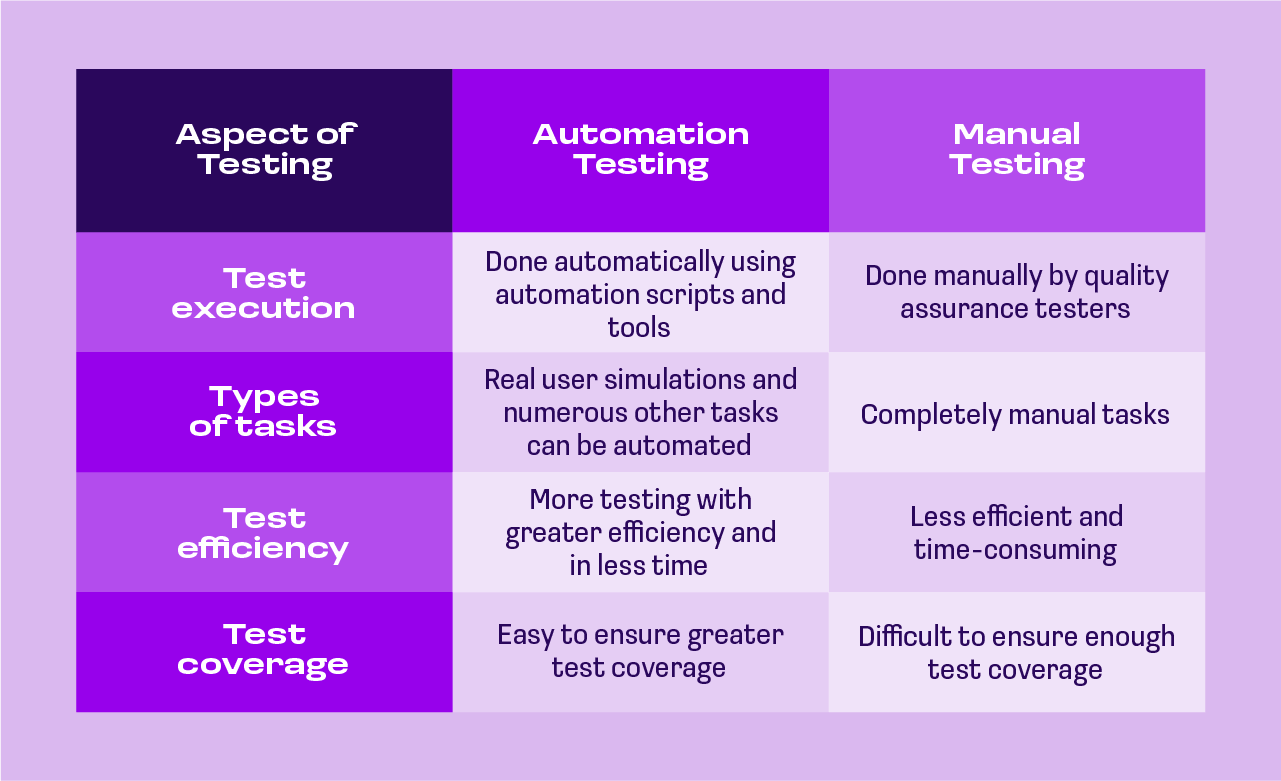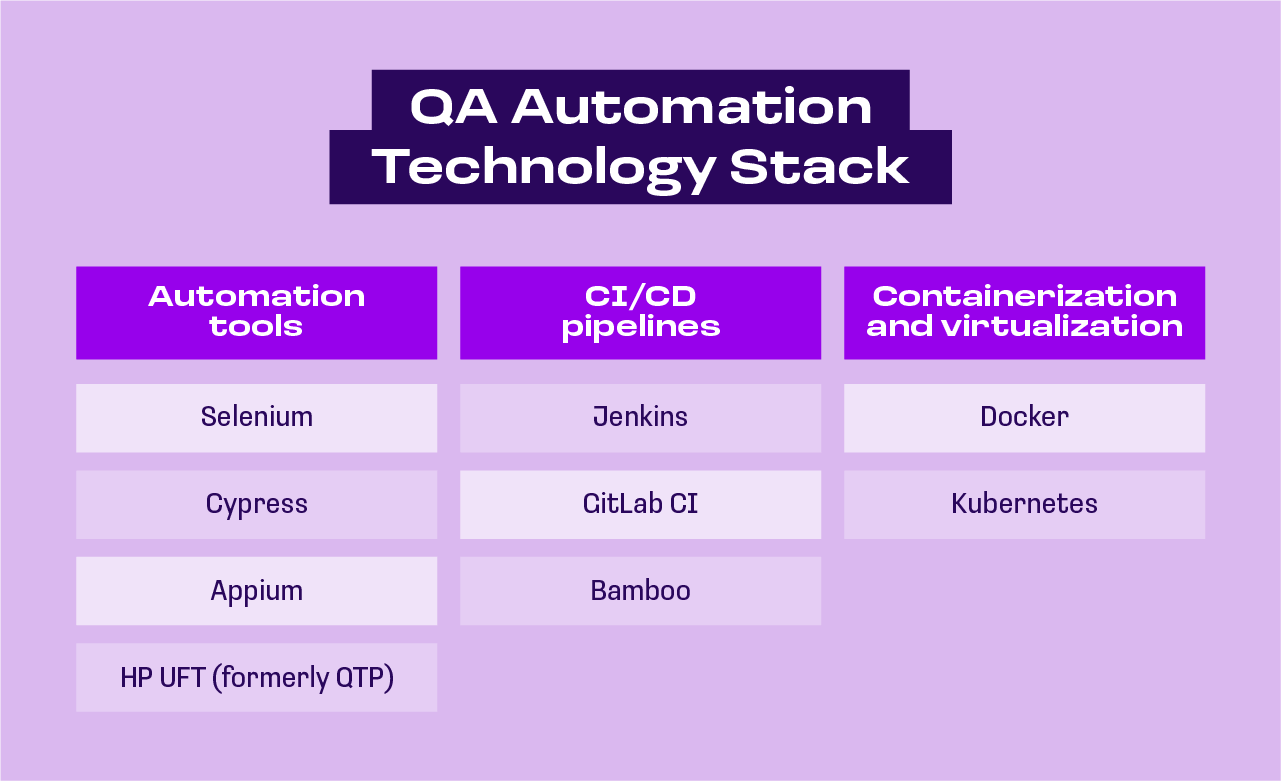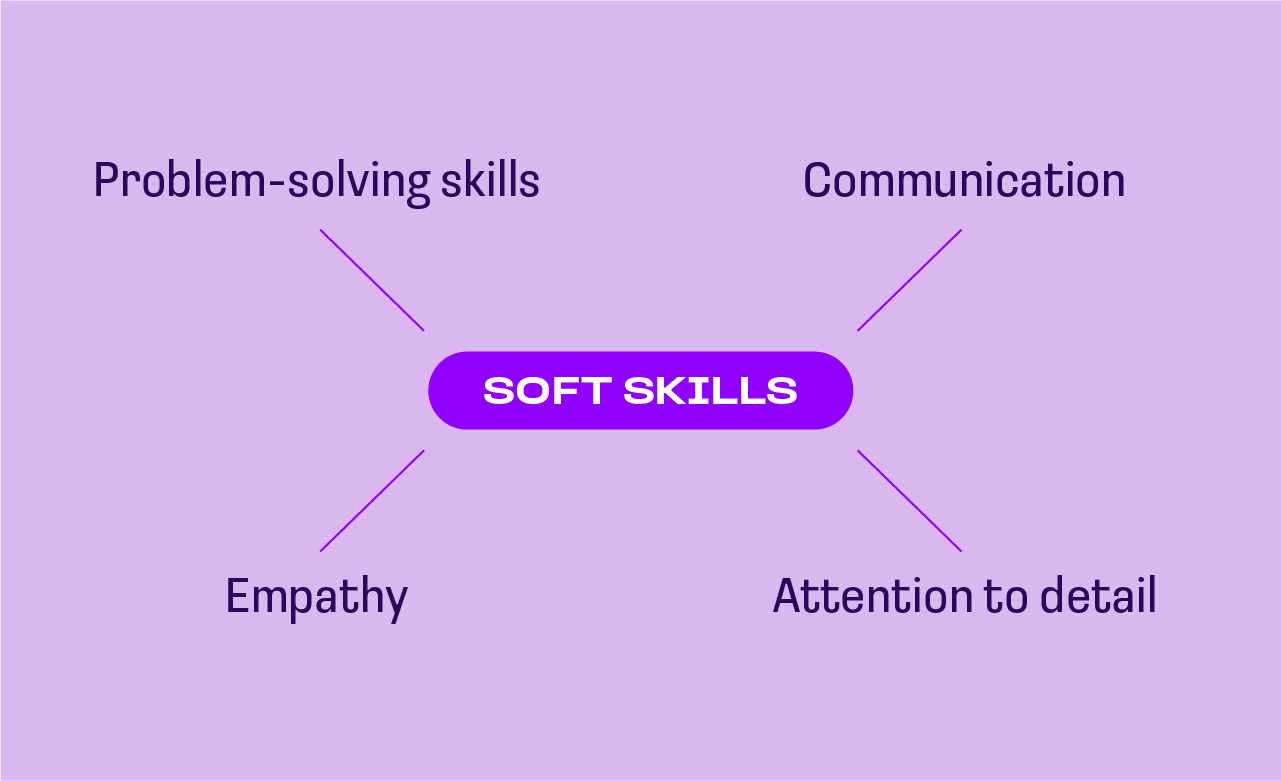Automation Testing Career Path: From Novice to Expert
The author of this article is tech expert Pieter Murphy.

Quality assurance (QA) automation testing is a relatively new role. Because of this, there is no single career path for automation testers that you can take to break into the field. However, a good starting point is acquiring a strong understanding of the role of a QA automation tester in software development and user experience.
From there, you would need to earn credentials and cultivate relevant skills that will help you start your career as a QA automation tester. Automation testing is a new field and one poised for potential growth.
If you’re not so sure of the possibilities, consider the statistics. A survey by McKinsey reveals that at least 66% of businesses have automated one or more business functions. Statista estimates that by 2025, global spending on digital transformation will reach $2.8 trillion.
From these statistics combined, the industry paints a rosy picture for you and anyone considering going down the test automation engineer career path.
How Automation Testing Differs from Manual Testing
As the names imply, automation and manual testing follow different approaches to testing. In the automatic paradigm, tests are conducted using automation scripts or software suites created for the purpose.
In the manual approach, a tester validates each function and feature by interacting with it directly step-by-step. As such, it tends to be slower than automated testing, where many tests can be conducted successively or concurrently and presented in an easy-to-understand report.
While automated testing might feel like the be-all and end-all of testing, manual testers are still needed to validate features or functions that cannot be automated. Let’s briefly explore each approach of automation testing as a career.
What is manual testing?
Manual testing is a process in which quality assurance analysts run individual tests to catch feature issues and bugs in an application before it is released for use.
While manual testing may be slower, error-prone, and unsuitable for large or complex projects, it comes in handy for specific tests such as exploratory testing, user interface testing, user acceptance testing, and other tests where human sensibilities and intuition are required.
What is automation testing?
Automated testing can be described as the process in which testers make use of scripts and tools to automate testing efforts. With automated testing, testers can execute more test cases and improve coverage. When comparing automation testing against manual testing, manual takes much longer; thus, automated testing is more efficient.
How does manual testing work?
Manual testing is quite hands-on. QA engineers and analysts are highly involved in everything from creating the test case to the actual test execution.
How does automation testing work?
Automation testing sees testers write scripts to automate the process. A text script comprises a set of instructions detailing what the program should do to validate that a feature works as intended.
What are the strengths and weaknesses of automation testing and manual testing?
Automation testing, while quick and suitable for complex and large-scale projects where high adaptability and human sensibilities are not required, does have weaknesses that make it necessary to have manual testers.
Automation testing suffers shortcomings that include:
- It requires initial investment in tools, training, and development of tests.
- It can produce unstable outcomes or false results.
- You need skilled employees to use the technology.
- It can only find predefined mistakes.
- It is not suitable for testing specific visual components.
These aren’t, by any means, all the shortcomings, but they highlight the strengths of manual testing, which comes in handy to fill some of the gaps.
Your test automation engineer career path will require you to develop the ability to do both kinds of testing, so you can switch from manual to automation testing as needed.
Automation testing against manual testing comparison
Here’s a table that you can use to compare the differences between manual and automation testing quickly:

Why choose automation testing over manual testing?
The biggest pro of automation testing over manual testing is that it expands how much can be tested and increases productivity.
Automation testing allows for more testing in less time through:
- Fewer manual tasks: Automation testing lowers the number of repetitive manual tasks during the testing phase.
- More automation: Test automation tools have become more comprehensive. They now allow for the automation of highly advanced tests using real-user simulation technology.
Another advantage automation testing has over manual testing is increased test coverage. This increased test coverage allows automated testing to deliver better results.
QA Automation Technology Stack
Let’s now focus on the QA automation technology stack that you’ll probably need to use in your career as an automation test engineer. Tools like Docker, Jenkins, Selenium, and numerous others are fundamental to the field as they provide quality assurance testing engineers with the needed capabilities to handle their duties.
Here are the most popular and important tools you will need to master to progress your career as an automation test engineer.
Automation tools
Selenium
When it comes to web applications, Selenium is the go-to option for QA professionals and individuals aspiring to embark on an automation test engineer career path. If you’re familiar with JavaScript, this tool will be easy for you to use. Selenium is an open-source testing tool that can work across a variety of browsers.
Cypress
Cypress is another web-oriented option that is fast gaining popularity. It is an end-to-end tool that is based on JavaScript. This makes it user-friendly and highly capable for automated web testing.
Appium
Appium offers several reliable automation tools for mobile application tools. It is an open-source framework adaptable to different types of mobile platforms like iOS and Android. If you want to become a QA tester focusing on mobile, then Appium is a must.
HP UFT (formerly QTP)
HP UFT is based on the Visual Basic programming language. It is an automated functional testing tool. HP UFT is an excellent option for automated desktop application testing in addition to working on web applications.
CI/CD pipelines in test automation
Jenkins
Jenkins is an open-source CI server usually part of the CI/CD pipeline. It provides quality assurance professionals with tools to build, test, and deploy code automatically and continuously. Jenkins also can automate end-to-end (E2E) testing, as part of a broader solution.
GitLab CI
GitLab is another solution that offers tools for automating builds, tests, and code deployment. Its incredibly broad feature set allows teams to access various capabilities in the same platform. Auto-scaling runners, container registries, merge trains, test coverage visualization, and much more are all available through GitLab CI.
Bamboo
Bamboo is an open-source CI server that focuses on the building, testing, and deploying web apps. It has a user-friendly interface together with several other features, each designed to smoothen development and create intuitive, seamless workflows for Agile environments.
Containerization and virtualization
Docker
Docker is an incredibly popular software application for quality assurance organizations and professionals looking to streamline development. It comes with containerization features that enable teams to use an image on different platforms without necessarily adjusting a lot with the operating system (OS). Because containers are reproducible and reusable, Docker is also a great choice for destructive testing.
Kubernetes
Kubernetes is a container orchestration tool that offers management, scaling, and deployment capabilities. It is highly popular in the world of test automation. It is able to automate container management tasks and has built-in commands to roll out changes, scale applications up or down as needed, and handle deployment.

Soft Skills for QA Automation Engineer
Soft skills are essential for QA automation engineers to succeed in their roles. Some of the most important soft skills to fuel your automation testing career growth include:
Empathy
To learn how to become an automation tester will require you to understand other developers, QA testers, and clients and view any problem from their perspective to solve challenges. A QA who can empathize and truly understand each client's values will go a long way to producing a successful end product.
Attention to detail
In the development of web applications, the code represents the application, but it is intangible. Therefore, for a career as an automation tester, you should be able to spot imperfections and minor details in the systems and code, as well as all the other details that contribute to a top application.
Communication skills
Effective communication is vital for your QA automation engineer career path, as you must liaise with developers, other QA engineers, and clients. You must clearly express concepts and ideas in written and spoken forms. You should be an active listener as it is also part of communicating well.
Problem-solving skills
In your automation testing a career, you’ll be solving complex technical problems and managing issues. You should have a smart, unique, and efficient approach to every new issue.

Automation Testing Specializations
Automation testing encompasses various specializations tailored to address specific aspects of software quality assurance. Some of the key automation testing specializations you will encounter on your QA automation career path include:
API Testing
This specialization focuses on testing the functionality, reliability, performance, and security of application programming interfaces (APIs) that facilitate communication between software components.
Mobile Testing
This one involves testing mobile applications across different devices, platforms, and network conditions to ensure usability, compatibility, performance, and security.
Web Testing
This specialization concentrates on testing web applications to ensure functionality, usability, compatibility across browsers and platforms, performance, and security.
Performance Testing
This evaluates the speed, responsiveness, scalability, and stability of applications under various loads and conditions to identify performance bottlenecks and optimize system performance.
Security Testing
This identifies vulnerabilities and weaknesses in software systems to ensure the confidentiality, integrity, and availability of data and protect against potential security threats and breaches.
How to Start a QA Automation Career
Here are some steps that you can take to start your career in automation testing:
Educational Background
Although it is possible to join the field with a high school degree and a combination of boot camps, earning a bachelor’s degree in computer science, computer engineering, or a related field can help you develop the technical skills that you will need for a successful career in software automation testing.
If your career development plan for automation tester involves advanced roles that come with higher salaries, you might even consider getting a master’s degree.
Courses and Certifications
You can enroll in courses that cover software development, web development, and programming languages that you will need in your career path of automation tester. You should also obtain certifications from organizations like the International Software Testing Qualifications Board (ISTQB) that will help you demonstrate your knowledge and skills.
You should visit websites like Coursera, edX, and Udemy that offer a variety of courses and certifications in QA Automation.
Pay attention to Career Bootcamp by Anywhere Club: it is an educational online program that will help you stand out in the job market: you will be able to compose a compelling resume, go through interview training stages with a real recruiter, and learn life hacks for job searching and getting hired.
Required Skills
The following are some of the skills that you will need in order to cover the career scope in automation testing:
- Proficiency in programming languages like Python, JavaScript, or C#.
- Familiarity with test automation tools like Selenium, Katalon, or TestComplete.
- Knowledge of software development methodologies and testing techniques.
- Ability to write clear and concise test cases.
Internships
Doing internships or volunteer work at nearby tech companies or computer science departments can be a good source of practical experience. As part of your roadmap for automation testing career growth, you should apply for entry-level jobs in software companies to gain experience with testing and coding as part of your career in software automation testing.
Career Progression
The role of a test automation engineer is often perceived as flat, making it hard for practitioners and managers to determine how a team member can grow within it.
Here’s a guide that you can use to understand the levels for automation testing career growth:
Junior Automation Engineer
When you’re starting down the automation testing career path, your first position will be as a Junior Automation Engineer. You may be experienced in testing but may be new to programming. On the other hand, you may have coding knowledge or expertise but could still benefit from more lessons and practice on testing it.
As a junior engineer, you can begin by adding additional tests to the suite once the automation framework and test project are complete. In simpler terms, you will be assembling tests out of existing components.
Test automation is a term that refers to a software development project that requires extensive knowledge that encompasses everything from architecture and programming to the actual test. A junior automation engineer may need the oversight and help of other developers or senior automation engineers.
Mid-Level Automation Engineer
Mid-level automation professionals have a lot of expertise in testing and coding; as such, they can add new features to a present framework and test project, as well as automated tests.
Once your career growth in automation testing gets to the level of a mid-level automation engineer, you will no longer rely on other team members to develop the framework.
As each emerges, you can now make the needed functions and framework classes for different parts, new services, or new pages. A mid-level automation engineer, unlike a senior-level automation engineer, needs to be ready to create a test project from nothing.
Senior Automation Engineer
A senior automation engineer is an expert in coding and testing. These professionals can write automated tests and construct a complete automated test project from scratch. They know when and how to make use of the various test-centric design patterns that are available.
The senior automation engineer is often tasked with reviewing pull requests related to tests and contributing to the team’s best practices. At this point in their career path for QA automation engineer, they can instruct programmers on composing tests and creating testable code and decide the tests that should be automated and those that shouldn’t.
It’s common for senior automation engineers to leave the task of writing the actual tests to automation engineers and developers with less experience. Instead of the senior engineers focusing on writing examinations, they redirect a portion of their time to smoothen the work of the ones who do.
In addition to this, they are also involved in building triage and monitoring and are thus aware of what the tests say regarding the current state of the product.
Automation Architect
Automation architects are fully conversant with each aspect of the software-delivering processes. For their QA automation career path to get to this level, they should be capable of building testing projects from the start in a reusable style that makes updates easy. They have a good grasp of programming and software design concepts and are knowledgeable about the proper use of abstractions.
Automation architecture experts can accurately evaluate new technologies concerning their team’s requirements and are well-versed in various automation tools.
Automation architects can design automation tests at the end-to-end, integration, and unit levels. These experts are also comfortable using a wide range of tools and technologies to boost the state of their preexisting test suites.
Although automation architects can develop tests that are proven to be most effective, they don’t usually spend their time this way. Instead, they focus on creating test frameworks and internal tools that other engineers will use.
Automation architects have a very wide range of skills; because of this, they’re more often than not placed in charge of entire departments.
Automation Team Lead
Automation leads guide a team of automation engineers and other professionals. At this stage in your QA automation tester career path, you will provide mentorship and give strategy to those junior to you.
Like an automation architect, the team lead understands exactly how the automation of tests fits into software delivery as a whole. They often use their skills to optimize the execution of tests, build CI/CD pipelines, and ensure that the tests regularly provide fast and reliable feedback to the team.
Automation team leads often have interviewing and/or hiring responsibilities. They regularly collaborate with other stakeholders like business owners, managers, developers, Scrum masters, and testers. They assist each of these key players in understanding the purpose of automation and how or where they can make it successful.
Consulting Automation Engineer
A consulting automation engineer is usually higher up the hierarchy for their ability to implement an excellent test automation strategy. Most of the time, they will also be required to build an initial test project with some tests that will demonstrate a proof of concept that can be utilized and later expanded by the team.
Companies may employ consulting automation engineers full-time, although most companies prefer to bring them on short term to get the team on the right track.
When consulting automation engineers are working as full-time permanent employees, they typically strategize for multiple departments and teams, thus formulating a global test automation strategy within the entire company.
Automation engineers whose test automation career paths reach this level have an incredible wealth of varying experience, and through these experiences, they have identified common problems, strategies, and techniques that can be observed in most automation projects. Because of this particular reason, they can foresee problems before they come up and advise on the best ways to avoid or mitigate issues altogether.
Your QA career path to a consulting automation engineer role will require you to gain technical expertise that can help your company create a culture that supports test automation initiatives.
Automation Testers Success Stories
Companies that have adopted automated testing have witnessed an increase in efficiency and cost savings, together with faster releases and improved qualities.
Here are a few success stories:
- NTUC First Campus: They improved automation efficiency by 30%, freeing up resources for other testing.
- Quadwave: They achieved a 5x increase in release pace by adopting low-code test automation.
- Hansard: They reduced regression testing time by 300% with automation. This enabled quicker releases.
The career path for a test automation engineer can be challenging, but success is still possible. The following are examples of real people, successful automation testers:
- John, Automation Advocate: John's automation skills made him a go-to resource for the team, leading to promotion and recognition from stakeholders.
- Maria, Remote Tester: Automation enabled Maria to work remotely, achieving a better work-life balance while enjoying automated testing career growth.
Conclusion
The information that we have gone through here effectively covers the complete roadmap of becoming a quality assurance automation tester, explaining what a QA automation engineer is. It is relevant for you whether you’re preparing to launch your first career, or you are currently on the automation testing career path.
You can use it as an assessment tool to gauge where you are or as a guideline to move in the right direction. All the best of luck to you!

.png)
